An innocent bite into Sweet Tarts could take you back to your childhood with Willy Wonka’s ‘Chocolate Factory’ airing on the television and making your taste buds go gaga. Over the years, Sweet Tarts has produced more than one type of candy. Now there are chewy, gummy, and rope varieties to suit the growing demands of today’s little candy freaks, but are Sweet Tarts vegan? Some of them probably are!
There is understandable nostalgia associated with Sweet Tarts because they are produced by the Nestle’s Willy Wonka company and this name is a fairy tale in itself. Before you bite in and step into your sweet and sour dreamland, we’ll take you through the vegan-ness of each variety of Sweet Tarts so you don’t have to regret your slip later on.
How vegan is your favourite Sweet Tarts candy?
Be it original, chewy, gummy, or rope, SweeTarts are an addiction that could last a life. A few ingredients in some of these varieties are particularly unacceptable while some are comparatively clean. Let’s put them to trial.
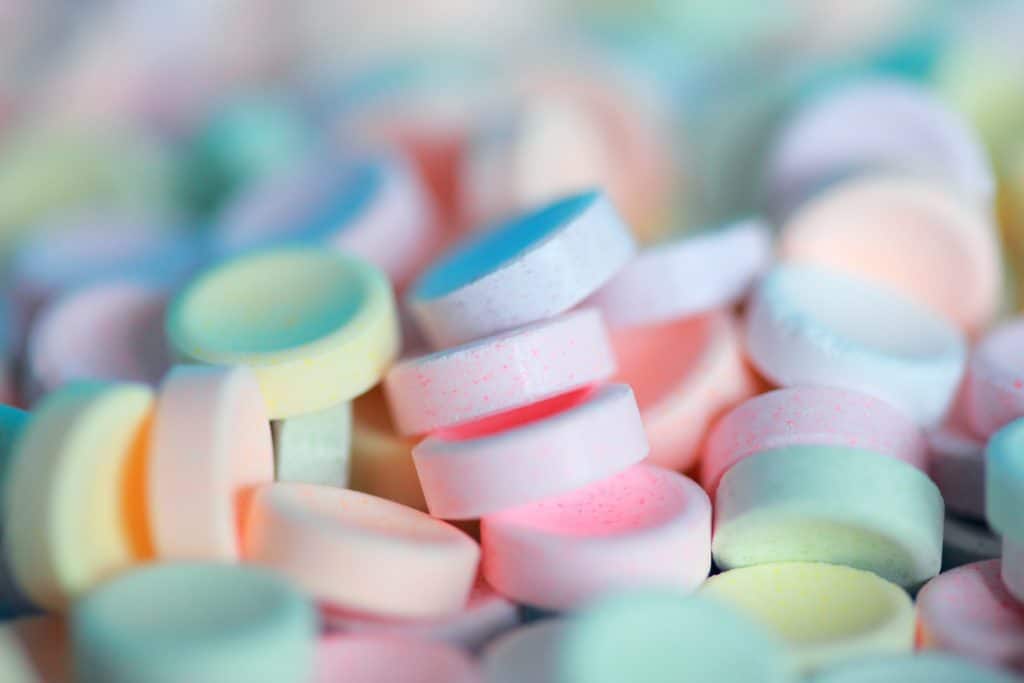
The Original Sweet Tarts are quite vegan
The Original variety of Sweet Tarts are vegan by most standards. The only problematic ingredients are natural flavours and artificial colors. This derivation also includes the original SweeTarts that come in bunny and duck shapes. But have you ever wondered why some vegans consider natural flavours and artificial colors problematic? These ingredients, along with processed sugar and palm oil, are considered controversial ingredients.
Natural flavours are not as natural as you may think
According to the FDA, ‘the term natural flavours or natural flavouring contains the flavouring constituents derived from a spice, fruit, or fruit juice, vegetable, or vegetable juice, edible yeast, herb, bark, bud, root, leaf, or similar plant material, meat, seafood, poultry, eggs, dairy products, or fermentation products thereof, whose significant functioning in food is flavouring rather than nutritional.
This implies that the fruity flavours in your candy may not actually be derived from fruits at all! For example, castoreum is a natural flavour often considered vegan but in real is obtained from the anal secretions of animals like beavers.
This is but a small instance. You never really know where the natural flavours in your food come from, this is why it is a controversial ingredient.
If added colors are artificial, how are they not considered vegan?
Unlike many tough questions, this one is easy. It is true that artificial colors are usually synthetically created or extracted. They may not even be derived from animals in many cases. But they are always tested on animals in a testing lab. Artificial colors require periodic testing on lab animals to ascertain their harmful effects on human health. The Original variety of SweeTarts has incorporated artificial colors like Blue 1 Lake, Blue 2 Lake, Yellow 5 Lake, and Red 40 Lake.
Animals like rabbits, monkeys, rats, dogs, guinea pigs, and many more are administered toxic doses of these chemicals to determine the safe dosage values for humans. This results in either direct death of the subjected animals or their subsequent killing after they develop the side effects of these colors. It is blatantly unethical to make naive animals suffer for the sake of a few attractive colors in our food. This is the reason artificial colors are a controversial vegan ingredient.
The Chewy SweeTarts contain animal based ingredients
Be it berries and cherries, giant chewy, or the regular chewy SweeTarts, none of them are vegan. All of them contain objectionable animal based ingredients like egg albumen. The presence of Calcium Stearate and mono-and diglycerides also raises eyebrows. Other than that, of course there are artificial colors like Blue 1 Lake, Blue 2 Lake, Yellow 5 Lake, Yellow 6 Lake, Red 40 Lake. You are now already aware of how unethical and controversial artificial colors are for the vegan community. The rest of the bold constituents of this product are clearly not what you expect.
It is bad to have egg albumen in your food
Although some food products may use albumen derived from specific vegetables, it is indeed obtained most commonly from animal eggs or animal blood and muscles. There is nothing to wonder as SweeTarts have specified they use egg albumen in the chewy variety of candy. The presence of egg whites or their derivatives in apparently vegan food is unacceptable.
There is a mystery around Calcium Stearate
You are probably unaware of this, Calcium Stearate is sometimes derived from animals. The Stearic acid obtained from plants is as less saturated as 5% as compared to animals where it could be 45% saturated. This lures many manufacturers to give preference to animal based sources.
Stearic acid is obtained from oils like cocoa butter which are plant based. Unless it is obtained by saponification of triglycerides from fats of euthanized animals. The problem is, you never know where the one in your candy comes from.
The doubts you’ve heard about mono- and diglycerides are valid
This is because the mono- and diglycerides in the chewy variety of SweeTarts may well be obtained from animal fats even though it is possible to obtain them from plant based sources. Why? Because animal based sources are a cheaper option and your food manufacturers are not saints but capitalists. It is very much possible for this common ingredient to be an undercover animal based product.
Sweet Tarts Gummies are definitely not vegan
Three out of the four varieties of your favourite gummy candy contain gelatin as an ingredient. Except Soft Bites, all three, namely Gummies, Sour Gummies, Whipped and Tangy, definitely include gelatin in their preparation to provide the chewy texture they are well known for. Only the SweeTarts Soft Bites care to employ plant based pectin instead of gelatin.
If you aren’t aware, this is how gelatin is produced..
Gelatin is a type of protein obtained by a process that requires killing of animals like pigs, cows, and fish. The animal bones, ligaments, tendons, and skins are boiled in water for prolonged durations to acquire a consistent elastic substance used to make these candies soft and chewy. You definitely don’t want that in your mouth.
Unfortunately, SweeTarts Ropes are also not vegan
This is obviously no surprise for a vegan. We are used to such revelations about our much loved foods. Sweet Tarts Ropes contain gelatin, natural flavours, and artificial colors. This would be enough to classify this product as non vegan but there’s more: These much admired chunky ropes contain Confectioner’s Glaze.
Most vegans consider confectioner’s glaze to be another naive bakery item
This is particularly not true. There is a specific female lac bug found in parts of India and Thailand whose secretions are utilized to form Confectioner’s Glaze. As insects are animals, this product is not vegan and all food items with such ingredients should be avoided.
Some controversial ingredients are present in all varieties of Sweet Tarts
These ingredients are processed sugar and palm oil. Processed sugar is problematic and often debated in vegan circles because of the steps it undergoes during bleaching. Many sugar mills employ a bleaching and whitening method that utilizes bone char. Bone char is obtained by heating the bones of animals at very high temperatures so that they form a type of absorbing carbon which can be used in the whitening process of cane sugar. Even though traces of bone char are not passed into the final refined sugar, vegans consider this process problematic because the production of sugar at large involves animal cruelty.
Palm oil is another ingredient often labelled as controversial in the vegan community. It is obviously obtained from plants. But the large scale commercial palm oil plantations haven’t been kind to the earth and its animals. Quite a large number of animals have lost their natural habitats owing to the rapid and vast clearance of rainforests to make ample space for these plantations. On top of that, these plants release peat into the soil where they are planted which results in the release of greenhouse gas methane in huge amounts.
The destruction of a wide area of forests along with release of greenhouse gases has significantly contributed to global warming.
As veganism is about adopting a sustainable lifestyle, a product involving such vast degradation cannot really be considered vegan.
So are Sweet Tarts vegan?
The original variety of SweeTarts may be considered vegan to an extent. But all the other varieties are definitely not vegan because they contain animal-based products. Substances like Gelatin, Confectioner’s Glaze, and chemicals derived from animal fat are entirely unacceptable.
As a vegan, it is important to be aware about the controversial ingredients while it may not always be possible to avoid them. Veganism is about reducing your negative impact on the environment. Avoiding meat and dairy itself works significantly in reducing that impact while avoiding lesser known controversial constituents may not make such a large difference.
Make the reasonable choice and wisely choose what you eat.


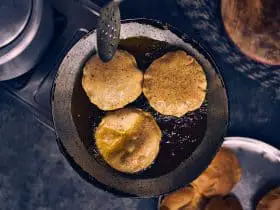
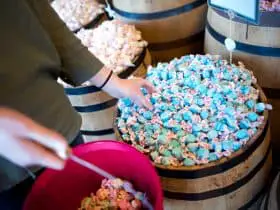
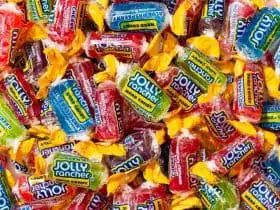

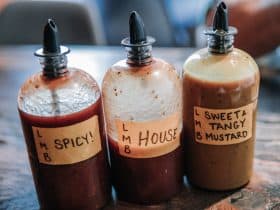
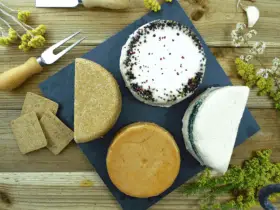



What type of gelatin is used in sweet tart ropes?